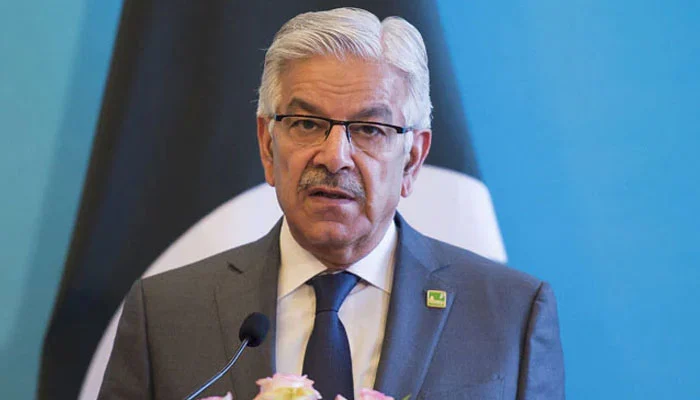Pakistan’s Defence Minister, Khawaja Muhammad Asif, has raised a serious alarm over rising India-Pakistan tensions. He stated that credible intelligence has revealed a dangerous plan by India. According to him, New Delhi may be preparing to launch an attack on Pakistan through the banned militant outfit, Tehreek-e-Taliban Pakistan (TTP).
In a statement issued on Thursday, Asif accused India of supplying weapons and explosives to TTP operatives. He claimed India is using the Afghan Taliban as a channel to arm these banned groups with IEDs and deadly weapons. This, he said, reflects a sharp rise in hostility and a calculated move to spread chaos inside Pakistan.
Khawaja Asif strongly criticised the Indian government. He said, “India is following its old strategies under Modi’s rule, influenced by the same Gujarat-style thinking.” His remarks targeted Indian Prime Minister Narendra Modi’s political background and alleged extremist mindset.
The defence minister warned that any Indian aggression would provoke a strong Pakistani reply. He reminded the nation of India’s failure after the Pulwama attack in 2019. “India faced shame and defeat after Pulwama. If they try something like that again, the outcome will be no different,” Asif stressed.
He also assured the public that Pakistan would do everything to protect its sovereignty. All relevant security agencies, he added, are working closely together. The government is on full alert and ready to counter any provocation. In the face of mounting India-Pakistan tensions, Pakistan remains united and prepared.
Asif’s statement clearly signals a dangerous rise in India-Pakistan tensions. His words reflect deep mistrust and concern over India’s alleged use of proxy groups. The threat, according to him, is not just military but also ideological and strategic. The government sees this as a direct attack on national peace and stability.
Pakistan’s leadership is watching the developments closely. Any misstep by India, they warn, will be met with full force. India-Pakistan tensions are now at a critical point. The next move could shape the future of regional security.


